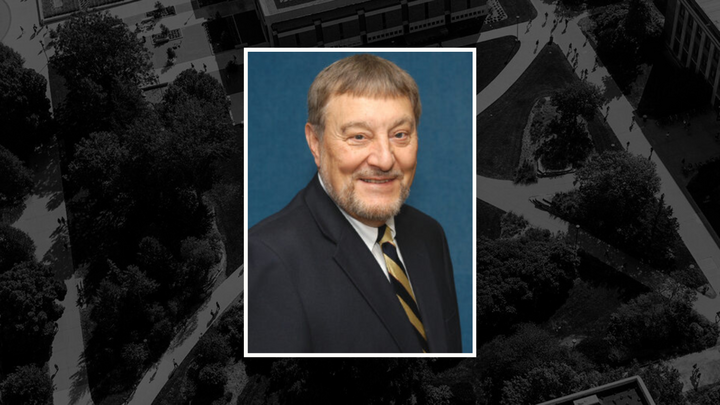Over the past five years, the College of Journalism and Mass Communications has strengthened its commitment to ethical journalism and media literacy, ensuring that students are prepared to uphold truth and integrity in their professional careers. Through curriculum enhancements, industry engagement, student-driven reporting initiatives, and new programs addressing critical gaps in local news, the college has expanded its reach and deepened its impact across Nebraska.
A cornerstone of this effort has been the expansion of media literacy education. In the first year of the strategic plan, faculty approved a requirement for all students in the college to take JOMC 222: Social Justice, Human Rights, and the Media. This course, which fulfills ACE 8 and ACE 9 requirements, introduces students to the critical role of media in shaping democracy and social justice. Since then, it has been regularly offered, ensuring that every student in the college receives a foundational education in media literacy and ethics.
Beyond the classroom, the college has created meaningful opportunities for students to engage in ethical discussions and real-world reporting. Industry partners and professionals in residence (PIRs) now participate in ethics roundtables, which were first introduced in year two of the strategic plan and have since become a regular feature each semester. These discussions expose students to the ethical challenges faced by media professionals and provide a space for critical engagement with issues of transparency, fairness, and public responsibility. Additionally, ethics and inclusive language modules were incorporated into the student leadership training program, reinforcing ethical decision-making for students leading projects within the Experience Lab.
The college has also prioritized covering democracy and democratic processes, providing students with opportunities to report on major political events. More than 80 students participated in live election night coverage hosted in Andersen Hall in 2022 and 2024, including presidential elections. In 2024, students traveled to cover the Iowa Caucus, gaining firsthand experience in political reporting. The college has also played a role in facilitating political discourse, hosting a congressional debate in 2022 and a mayoral debate in 2023. These initiatives allow students to develop critical skills in political journalism while contributing to civic engagement and informed public discourse.
Student organizations have played a critical role in fostering ethical journalism. The college successfully established the Nebraska chapter of the Society for Professional Journalists (SPJ) in 2023, providing students with professional development opportunities and connections to national networks. In the years that followed, the chapter has grown in membership, and the college remains committed to hosting a regional SPJ meeting, further integrating Nebraska students into broader conversations about the future of ethical journalism.
One of the most significant areas of impact has been the expansion of the Nebraska News Service (NNS) and its role in delivering high-quality journalism to communities across the state. Since the strategic plan’s launch, the number of NNS clients and published student work has steadily increased, with a particular focus on providing rural communities with multimedia news coverage. The integration of Nebraska Nightly and KRNU into the practicum requirement has further expanded the multimedia storytelling capacity of student journalists, ensuring that they gain hands-on experience across multiple formats.
The college has also significantly strengthened its Depth Reporting program, with the hiring of two Deepe Chairs in Depth Reporting in 2023-2024. This has allowed the program to offer annual investigative courses focused on critical social issues. In spring 2024, students investigated missing and murdered marginalized women, producing in-depth reporting on a topic with both state and national significance. In 2025, the course shifted its focus to Nebraska’s prison system, providing another opportunity for students to engage in rigorous investigative journalism that holds institutions accountable and informs the public.
In 2024, the college launched the Rural Journalism Internship Program, funded by a grant from the Stanton Foundation, to address the decline of local journalism in Nebraska’s rural communities. The initiative placed students in small newsrooms and community organizations across the state, allowing them to contribute directly to local news coverage while gaining hands-on field experience. Under the leadership of dean Shari Veil and associate professor Rick Alloway, students worked in diverse roles, from reporting on local issues to strengthening digital media strategies for community publications. The program has been widely praised by industry leaders, including the Nebraska Press Association and the Nebraska Broadcasters Association, for its innovative approach to strengthening rural journalism. Following its successful first year, the college plans to expand the program to provide more students with opportunities to contribute to rural news ecosystems.
As the college looks forward, its focus remains on strengthening media literacy, expanding experiential opportunities in ethical reporting, and continuing to support students in navigating the challenges of truth-seeking journalism. The expansion of the Depth Reporting program and the Rural Journalism Internship Program demonstrates the college’s ongoing commitment to both educating future journalists and strengthening Nebraska’s local news landscape. These efforts ensure that students are equipped to serve their communities with integrity, transparency, and a deep commitment to democratic values.
Targets | Aim | 20-21 | 21-22 | 22-23 | 23-24 | 24-25 |
| Increase enrollment in college offered ACE courses by 20% | 4 | 3984 | 3531 | 3663 | 3216 | 2952 |
100% of syllabi will show learning outcomes related to ethics and integrity. | 4 | 0 | 0 | 13% | 23% | 38% |




